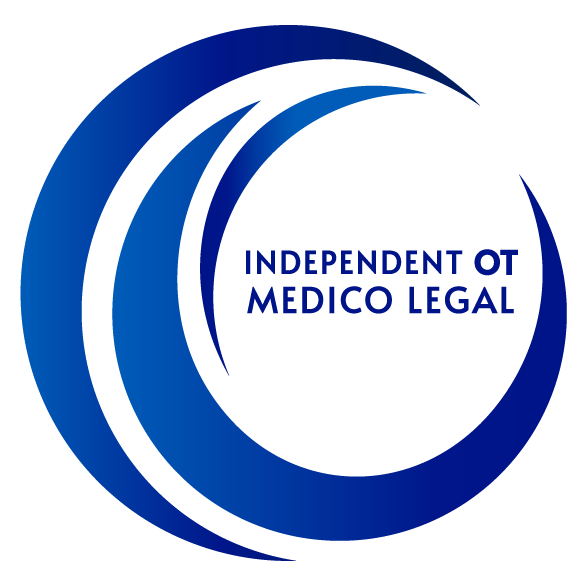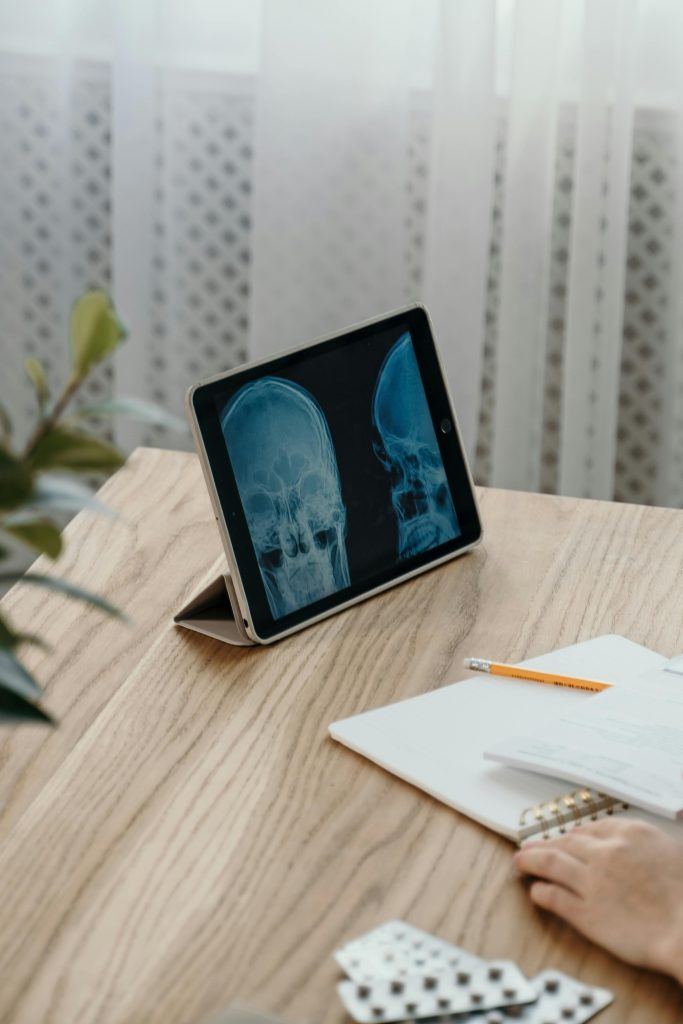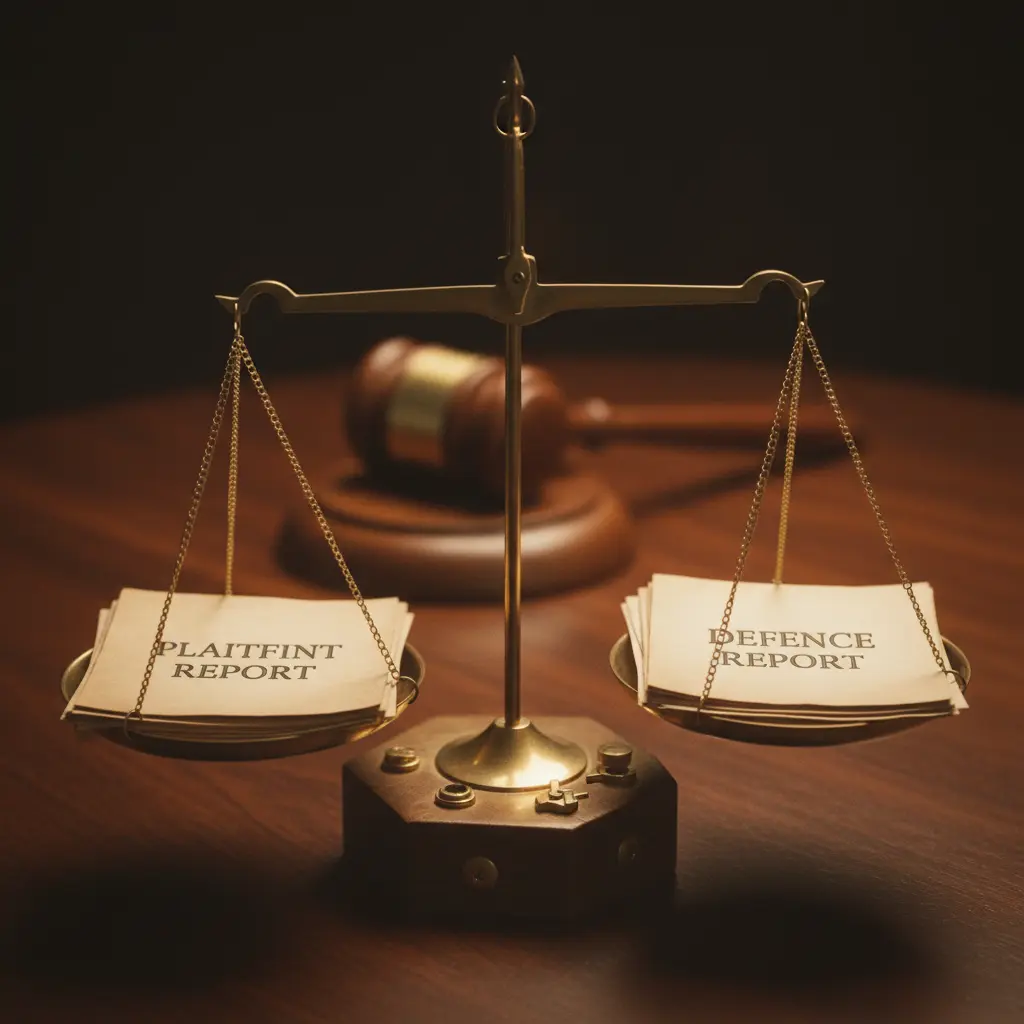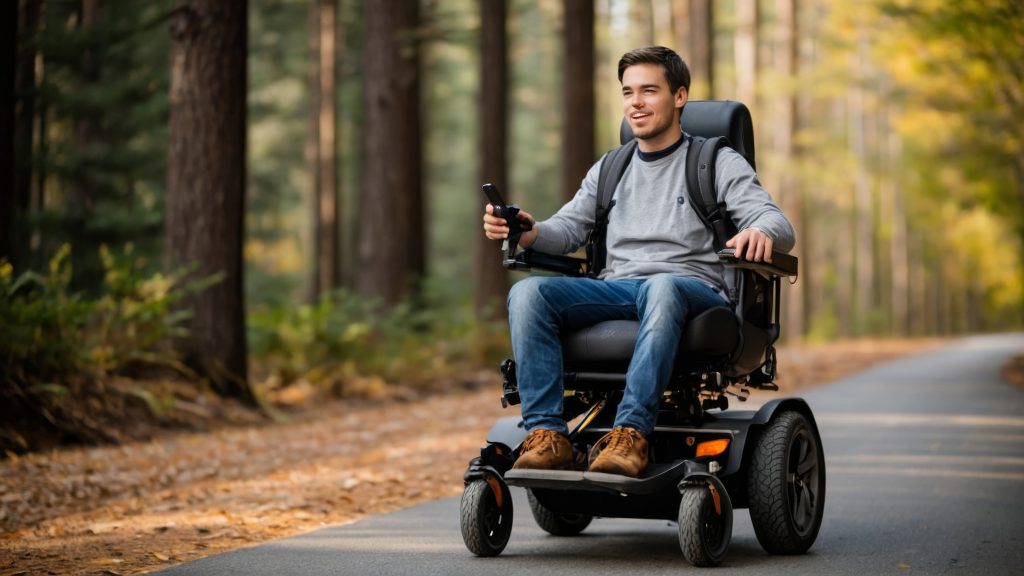Brain injury litigation necessitates comprehensive assessment from a range of specialists to establish the full impact on an individual’s life. Occupational therapists play a crucial role in this process, providing detailed analysis of how the injury affects everyday functioning and independence. Our occupational therapy medico-legal reports provide objective evidence regarding functional limitations, care requirements, equipment needs, and rehabilitation potential that assists legal parties to understand the functional impact of the brain injury and its associated costs.
These specialised reports bridge the gap between medical diagnoses and real-world implications, documenting precisely how a brain injury impacts a person’s ability to perform daily activities, maintain employment, and engage in leisure pursuits. We assess individuals in their home environments in order to gather accurate information about their capabilities and challenges. Where indicated, we may also complete workplace or community-based assessments if further investigation is required.
The detailed observations and recommendations contained in occupational therapy reports help legal professionals, insurers, and courts understand the practical support needed for recovery and long-term management. This information is essential for determining appropriate compensation that accurately reflects the true cost of care, equipment, home modifications, and ongoing therapy required to maximise independence and quality of life.
Understanding Brain Injury and Its Impact
Brain injuries represent a complex medical challenge with far-reaching implications for individuals’ daily functioning and quality of life. These injuries vary significantly in type, cause, and manifestation, creating unique challenges that require specialised assessment and intervention approaches.
Types of Brain Injury
Acquired brain injury (ABI) encompasses any damage to the brain that occurs after, or during, birth. This broad category includes traumatic brain injury (TBI), which results from external forces, and non-traumatic injuries caused by internal factors.
TBI severity ranges from mild concussions to severe trauma with prolonged loss of consciousness and post-traumatic amnesia. Diffuse axonal injury represents one of the most serious TBI types, involving widespread damage to brain connections.
Non-traumatic ABIs include stroke (cerebrovascular accident), where blood flow to the brain is interrupted, and hypoxic brain injury resulting from oxygen deprivation. Neurological conditions like Parkinson’s disease, multiple sclerosis, and dementia can also cause progressive brain changes.
Secondary brain injuries develop after the initial trauma, often due to complications like increased intracranial pressure, bleeding, infection, or hydrocephalus.
Common Causes and Associated Neurological Conditions
Motor vehicle accidents represent a leading cause of TBI in Australia, followed by falls, particularly among older adults and young children. Workplace incidents, sporting injuries and assault also contribute significantly to brain trauma statistics.
Stroke commonly results from blood clots (ischaemic) or ruptured blood vessels (haemorrhagic). Risk factors include hypertension, smoking, diabetes and advanced age.
Several neurological conditions can co-occur with or result from brain injuries:
- Spasticity: Abnormal muscle tone affecting movement
- Post-traumatic epilepsy: Seizures following brain trauma
- Cognitive impairment: Memory, attention and reasoning difficulties
- Behavioural changes: Personality alterations, emotional regulation issues
Functional and Cognitive Consequences
Brain injuries frequently impact daily living activities. Even where there is no physical impairment, self-care routines like bathing, dressing and meal preparation may become challenging due to issues associated with memory, attention, and information processing, requiring adaptive strategies or assistance.
Work capacity is often significantly affected. Individuals may experience difficulties with concentration, fatigue management, and executive functions like planning and problem-solving.
Common cognitive consequences include:
- Short and long-term memory deficits
- Attention and concentration problems
- Information processing difficulties
- Impaired judgement and decision-making
- Language and communication challenges
Physical impacts vary widely, potentially including motor impairments, sensory changes, fatigue, headaches, and sleep disturbances. Visual and auditory processing deficits are particularly disruptive to daily functioning.
Emotional and behavioural changes often present significant challenges. Depression, anxiety, irritability, and impulsivity are common, affecting relationships and community participation.
Key Components of Brain Injury Medico-Legal Reports
Comprehensive medico-legal reports for brain injury cases require specific documentation and analysis that captures the full impact of injuries on a person’s daily functioning and future needs.
Overview and Purposes of Medico-Legal Reporting
Medico-legal reports in brain injury cases serve as crucial evidence that bridges medical findings with legal proceedings. These reports provide objective assessments of how injuries impact an individual’s capacity to perform everyday activities.
A well-structured report typically includes a detailed injury history, past gratuitous care required since the time of injury, current functional status, and recommended future care and rehabilitation needs. We ensure all opinions stated in the report are substantiated with clinical observations and standardised assessments rather than speculation.
The ultimate purpose is to provide a clear picture of how the brain injury affects the person’s participation in life across all domains of functioning.
Gathering and Analysing Medical Records
Thorough examination of medical records forms the foundation of credible medico-legal reporting. We review hospital admission notes, imaging reports, and treatment records to determine the medical diagnosis provided; as well as to gain an understanding of the treatment and rehabilitation options that have been offered and any associated functional gains. Medical documentation analysis should include:
- Acute care records: Emergency department notes, surgical interventions
- Rehabilitation records: Therapy progress notes, discharge summaries
- Specialist consultations: Neurology, psychiatry, and other relevant specialties
- Previous medical history: Pre-existing conditions that may influence recovery
We pay particular attention to the progression of symptoms and recovery patterns documented throughout the treatment journey. This chronological review helps establish whether the current presentation aligns with expected outcomes for the type and severity of injury sustained.
Functional and Cognitive Impairment Documentation
Detailed assessment of impairments forms the core of our occupational therapy medico-legal reports. We document how functional limitations affect capacity in real-world contexts, including work, community participation, and daily routines.
Standardised assessments provide measurable data on attention, memory, planning, and processing. These results are paired with clinical observations to highlight where support is needed most.
Rather than listing deficits in isolation, our reports emphasise how they manifest in everyday tasks—such as managing finances or planning a shopping trip—and evaluate the effectiveness of any compensatory tools already in place.
Occupational Therapy’s Contribution to the Medico-Legal Process
Formulating Opinions on Causation, Damages, and Liability
Our assessments provide critical insights into how brain injuries directly affect functional capacity and independence in daily activities
Occupational therapists quantify the functional impact of an injury through detailed analysis of pre and post-injury function. This includes evaluating work capacity, self-care abilities, and participation in leisure and community activities. Our functional assessments highlight the practical implications of a brain injury on the person’s independence and quality of life.
We provide expert opinions on:
- Past and future care requirements and costs
- Assistive technology needs
- Home modification recommendations
- Return-to-work potential
- Long-term support needs
Quality Assurance and Standard of Care
We maintain rigorous quality assurance processes to ensure medico-legal reports meet the highest professional standards. All assessments follow standardised protocols and validated assessment tools specific to brain injury rehabilitation.
Our reports undergo peer review to verify accuracy and objectivity. This process may involve senior occupational therapists acting as mentors to review findings and recommendations.
Quality considerations include:
- Documentation completeness
- Evidence-based recommendations
- Clarity of reasoning
- Appropriate scope of practice
- Current clinical knowledge application
Require a Brain Injury Medico-Legal Report? Contact Us Today
Our team of occupational therapists specialises in comprehensive brain injury medico legal reports for individuals affected by acquired brain injuries. We possess extensive clinical experience working with clients experiencing both cognitive and physical challenges following brain trauma.
Each assessment is conducted with meticulous attention to detail. We employ a thorough interview process and selected standardised disability assessments to fully understand how the injury impacts daily functioning.
Our expertise covers:
- Mild to severe brain injuries
- Complex brain injury cases
- Functional impact assessment
- Care requirements evaluation
- Assistive equipment recommendations
We pride ourselves on delivering balanced, objective reports based on critical analysis of all available evidence. Our goal is to capture the complete picture of how a brain injury affects an individual’s capacity for self-care, work and leisure activities; and the care, rehabilitation and equipment required as a result of the impairment.
Contact our team today to discuss your requirements for a brain injury medico-legal report.
Further Reading
Common Mistakes When Requesting a Medico-Legal Report (and How to Avoid Them)




